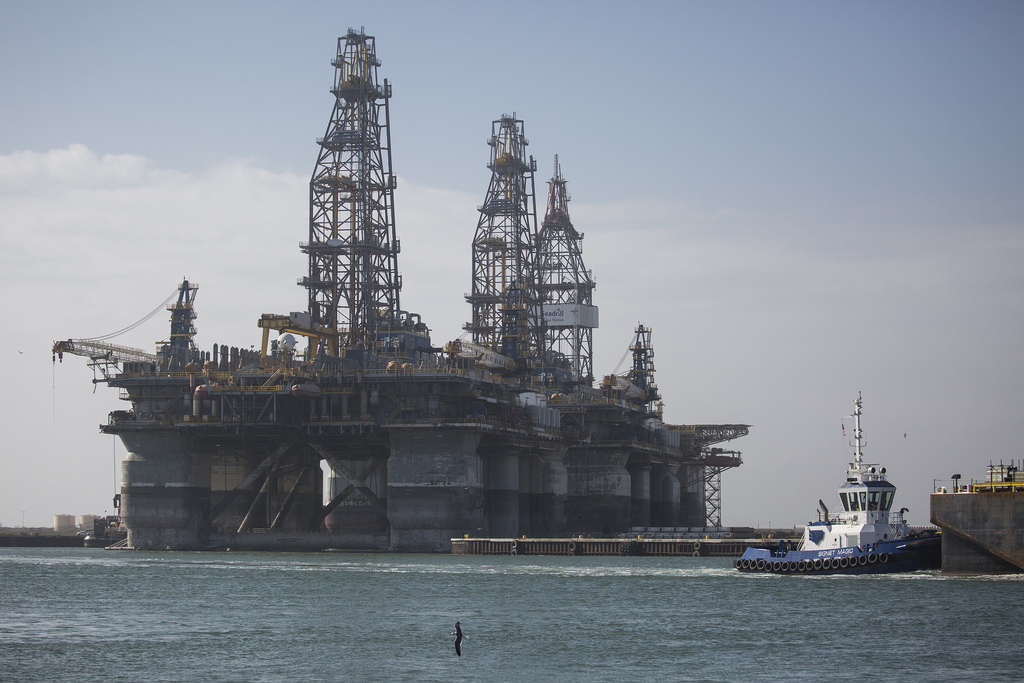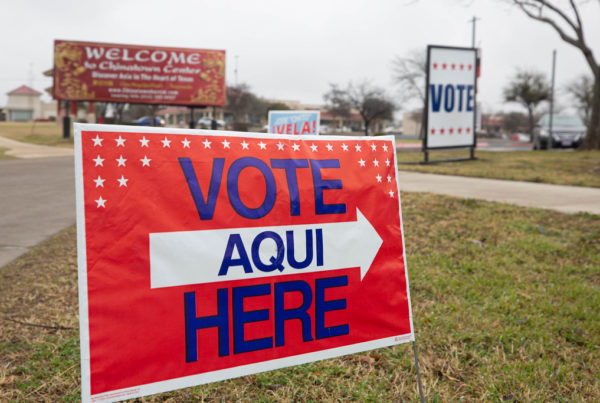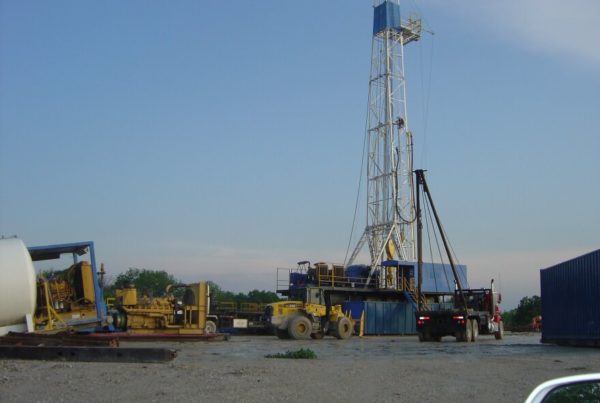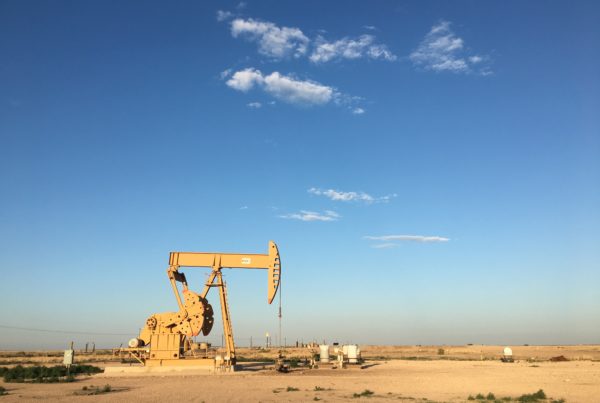A federal judge last week cancelled the results of an auction held by the U.S. Interior Department for the right to drill for oil and gas in the Gulf of Mexico.
Companies such as ExxonMobil and BP spent over $190 million for control of offshore tracts. But now they’re in limbo, thanks to the judge’s ruling.
Chris Knight, energy and climate reporter for Argus Media, talked to the Texas Standard about the factors behind the ruling.
Listen to the interview above or read the transcript below.
This transcript has been edited lightly for clarity:
Texas Standard: Tell us more about what the interior department failed to do leading up to this auction, according to the judge.
Chris Knight: Before the interior department holds any offshore lease sale, they have to look at the consequences of holding the lease sale. And that includes consequences like greenhouse gas emissions, things like oil spills. And so what they did here was they did an analysis of how holding this lease sale might increase greenhouse gas emissions might decrease greenhouse gas emissions. And they found that holding this lease sale would result in lower emissions in the U.S. because producing oil here means you don’t have to send it across the ocean on a tanker.
Gulf of Mexico oil and gas is lower in emissions than the average of foreign imports. And so they said, Look, there’s going to be less emissions here. This is better for the climate. What the judge found was that while that all might be the case, they didn’t look at how importing more oil into the U.S. would affect emissions overseas. So if you bring a much oil over from Saudi Arabia or other countries, that’s going to increase prices overseas, it might cause people to reduce their consumption of oil overseas. And so the judge said, you need to go back and you need to look at this and do a more comprehensive analysis.
I s that the sort of thing that the interior department has done in the past? Or is this something new that the judge is asking the department to do?
This is a sort of a line of cases, starting, in what I believe is 2020. Judges across the country started taking a closer look at some of these issues related to oil and gas production. So you had two cases in Alaska where the interior department did almost the exact same type of analysis. They basically assumed that there would be no effects on emissions overseas. And the reason they did that is they said, well, we can’t predict exactly how holding the lease sale is going to affect the entire world oil market.
But judges said the government has these tools. They have very sophisticated economic models. They have people who know how this these things work. And so judges in the past have said the interior department needs to revise the way it is doing this. So when the Biden administration came in, they had actually tried to pause all the oil and gas sales that were happening. But there was another lawsuit in Louisiana that required them to go forward with it. And so they dusted off this environmental analysis that was put together under the Trump administration and said, well, here’s our lease sale. We’re going to do it the way we’ve been doing it. And that got them into trouble in this case.
Is there any indication that the Biden administration wanted to use this analysis process because it already knew that it wouldn’t pass judicial scrutiny?
If you talk to oil and gas officials, that’s sort of an eyebrow raising thing they think about. The interior department was probably in a difficult spot. They had on one hand this feeling that the environmental analysis was inadequate. They put out many public statements saying this. And then on the other hand, they had a federal judge in Louisiana saying, “you need to hold this lease sale and you need to hold it quickly.” And preparing these environmental analysis takes time. It often requires public comment. Preparing a new one would have taken probably months, and they had a judge telling them they needed to go forward with it.
What are folks saying in reaction to this? Because I would imagine the companies that won the right to in offshore drilling lease might be rather upset right now.
The individual companies haven’t put out specific statements, but if you talk to some of the big trade groups, they say this is going to be very disruptive. Companies acquire these leases years in advance, and it takes a long time to develop. By the time you lease a property. It might be four or seven years before you start producing oil. And so they kind of need this little assembly line of acquiring new leases, conducting surveys and then sending out ships to actually drill. And that takes a long time. And so the companies say, if you cut off all these leases that we were depending on, we’re going to have trouble down the road.
What about environmental groups? What are they saying about what’s happened here?
Environmental groups are quite pleased. As far as I know – I’ve been covering this for about seven or eight years – there’s never been entire lease sale voided like this in the offshore sector. And these are some of the bigger oil and gas lease sales. So stopping this sale or canceling these leases is a very big win from the environmentalists perspective. They want the interior department to have an adequate climate analysis that looks at all of the effects before deciding whether to hold these lease sales. And they believe that if you went into this with your eyes wide open, you wouldn’t be holding a lease sale at all, or you wouldn’t be holding as big of a lease sale.
Do you think this could have broader ripple effects for offshore drilling as a whole?
Yeah, I do. And one of the interesting things about this is, this is not the only lawsuit that’s out there that’s challenging lease sales. There’s a pending case in the D.C. Circuit Court of Appeals, where environmentalists are challenging to lease sales held in 2018. That case focuses on the risk of oil spills after they changed some safety rules. And if they succeed there, they could invalidate far more leases. And so if that’s the case, you would really have many offshore oil and gas companies whacking the leases they need or that they want.













